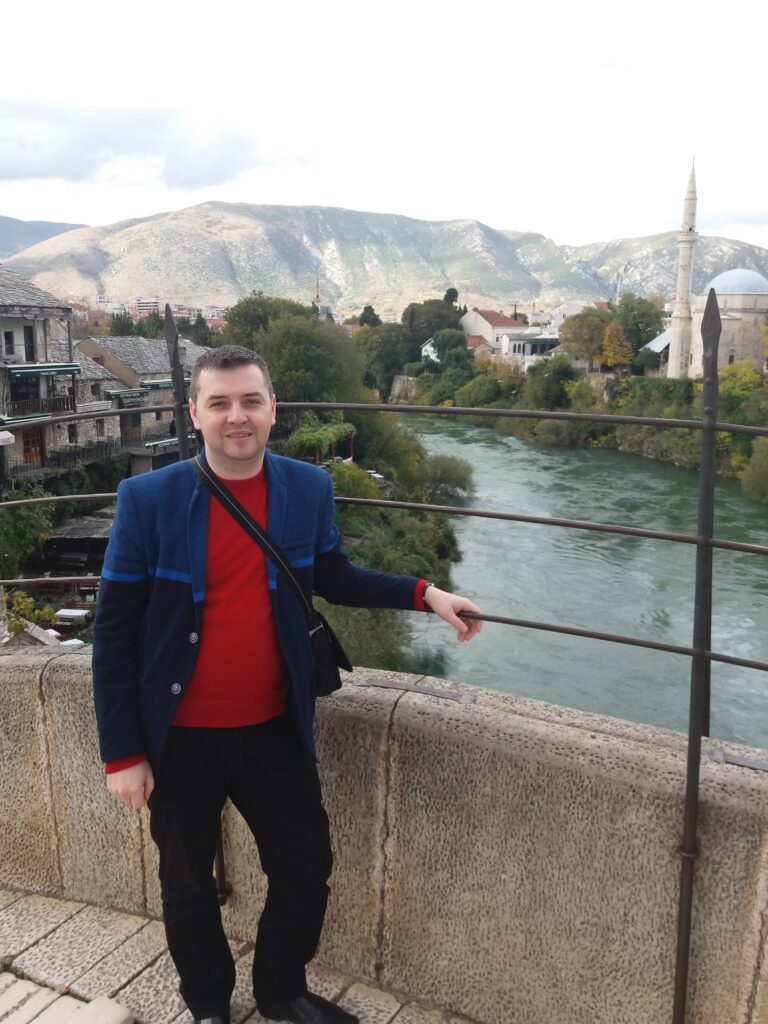HLFF Spotlight – Alumni in Action
Nikolas Mariani
Making Math Fun Again – Edin Liđan
The Heidelberg Laureate Forum has a single purpose: To provide some of the brightest minds in mathematics and computer science with the space and time to make connections and find inspiration. Some of the connections made at the HLF will echo into collaborations and projects, with some of those efforts leading to concrete developments. The HLFF Spotlight series unpacks a few of those examples.
This week, our spotlight shines on mathematician, computer scientist and alumnus of the Heidelberg Laureate Forum, Edin Liđan. Edin is currently Assistant Professor at the International Burch University in Sarajevo, Bosnia and Herzegovina, and holds a PhD in Mathematics from the University of Montenegro, where he wrote his dissertation on “Topological Characteristics of Generalized Polyomino Tiling.” In our interview, we talk about his love for mathematics and his AlumNode funded project “Making Early Mathematics Learning Available and Fun.”
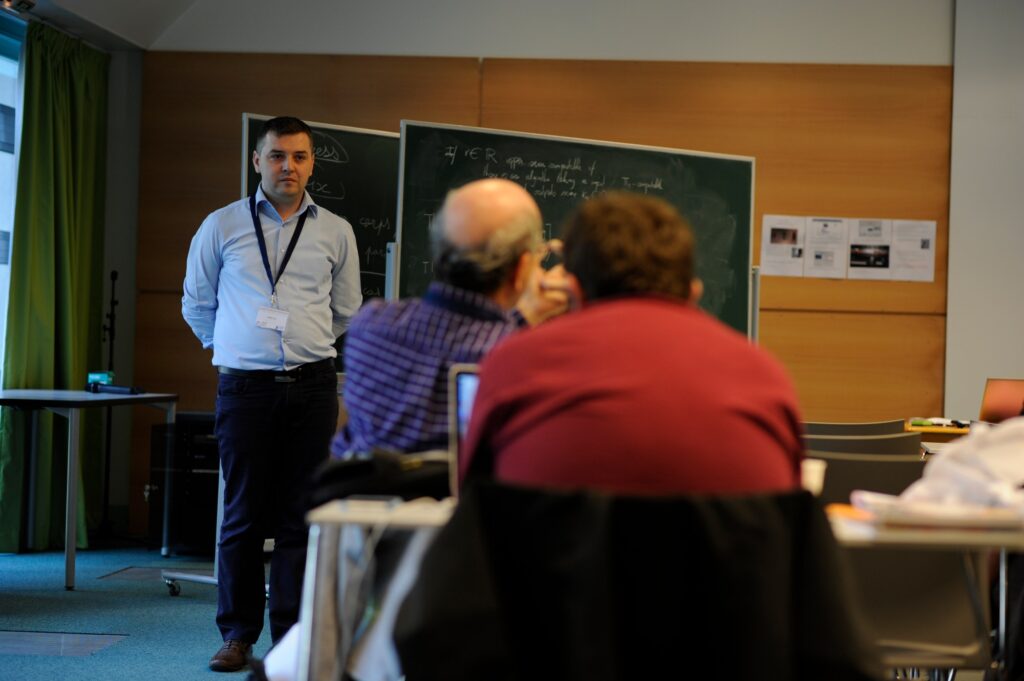
Edin Liđan at Tilings in Lyon, 2017 (Université de Lyon)
Edin tells us his passion for mathematics developed all the way back in primary school. The crucial factor in this, he says, was having good teachers. They took the time to explain things, sparked his interest and showed that math was actually simple, relatable and – most of all – fun. They even encouraged him to take part in competitions: “I just loved that period,” he says, “and just loved that kind of connection with us. They supported us; they gave us a lot of examples, a lot of real life problems of mathematics.” We ask whether he ever won any of those competitions. “No,” he laughs, but it is clear that that was never really the point. The inspiration from those experiences nevertheless drove him to pursue an academic career in mathematics and computer science.
In 2019, Edin attended the 7th Heidelberg Laureate Forum in Germany, where he was able to meet and interact with some of the most prominent researchers in his field: “It was very important to me to meet Efim Zelmanov, Martin Hellman, Whitfield Diffie, Caucher Birkar – the people you reference in your papers – I had the opportunity to speak with them, and it was something like a dream. During the HLF all the time I said, ‘please, this is just a dream, please don’t wake me up.’”
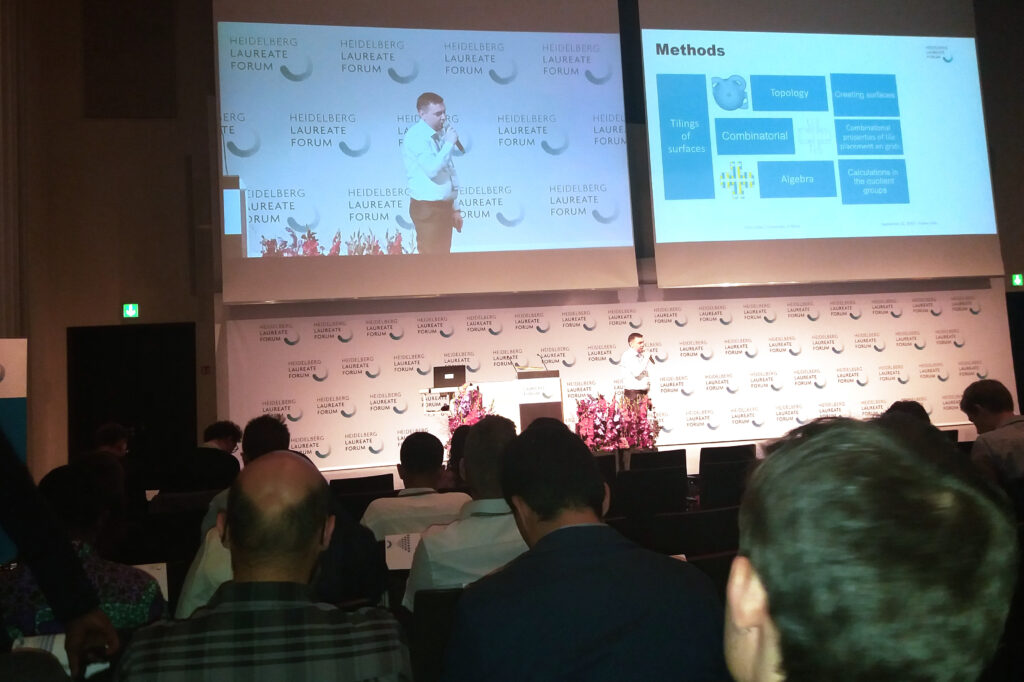
Edin Liđan presenting his PhD research at the Poster Flash of the 7th HLF
After attending the HLF, Edin started developing an idea for a project of his own. He wished to create something that would support young children in encountering and learning about mathematics at an early age, something to help inspire a passion for the field, just as he had experienced as a child. He set out to design an android-based app to teach basic arithmetical principles to children: “FunMath4Start”.
Edin explains to us that he saw the 2018 results of the PISA study, which regularly tracks students’ proficiencies in a number of areas. The levels for mathematics proficiency were “disappointing,” he says.
Indeed, those PISA results painted a worrying picture of mathematics education in Bosnia and Herzegovina. PISA sorts mathematics proficiency into “Levels”: Level 2, for example, is classified as students being able to – among other things – “use basic algorithms, formulae, procedures or conventions to solve problems involving whole numbers – e.g. to compute the approximate price of an object in a different currency or to compare the total distance across two alternative routes.” However, in their 2018 assessment, PISA found that nearly 60% of the 15-year-olds tested in Bosnia and Herzegovina performed below that, and were considered “low achievers.” Overall, Bosnia’s results put them solidly below the OECD average.
There are many complex reasons that might account for these results, Edin says, but one major culprit in his view was a failure of early childhood education. Part of this derived from socioeconomic causes as well, with many children unable to attend preschool and thus later being at a disadvantage. Edin explains how part of the inspiration for his project came from his experience with his own son.
As the COVID pandemic hit in 2020, Edin and his wife Naida – like much of the rest of world – largely stayed at home. Edin happened to be in the final stages of writing and defending his dissertation. However, the circumstances also meant that their 3-year-old son, Imran, would not be able to attend preschool. Determined to make sure Imran was well prepared when he eventually enrolled in school, Edin and Naida took special care to work on early math education at home. Meanwhile, Edin and one of his colleagues, psychologist Amela Mujagić (Assistant Professor, University of Bihać), would often discuss how best to assist children in early math education during that difficult period. Eventually, they came up with the idea for the project: “Making Early Mathematics Learning Available and Fun.”
Edin wanted to develop an app that might assist parents and educators in ensuring that children receive early instruction in basic mathematical principles. Not only would this help disadvantaged communities, but it would provide a solid foundation for children’s further education as well as help them form a positive relationship with mathematics early on in life.
Therefore, inspired by his son’s eagerness to learn, Edin applied for funding from AlumNode, the interdisciplinary alumni network of the Heidelberg Laureate Forum Foudnation (HLFF), the Klaus Tschira Stiftung and the German Scholars Organization. AlumNode provides career support to members of their community as well as funding for joint projects. In the 2021/2022 funding round, Edin’s project was selected to be one of the six approved collaborations. Edin and his project partner – fellow HLF alumna and PhD student in theoretical informatics – Bojana Pantić set out to design and implement the app.
The major elements to be included were counting, simple arithmetic, and recognizing patterns. There would be customizable settings for girls and boys, and it would first be available in three languages: Bosnian, English and German. Edin explains it was important to him to prioritize his native language. While there were many learning apps for young children in English, for example, there was little to no such material available in Bosnian.
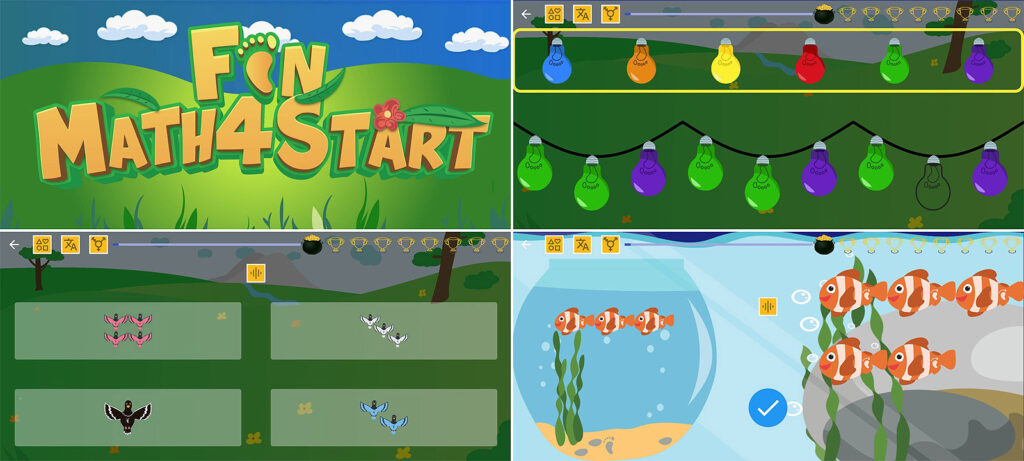
Beta version of the “FunMath4Start” android app
Edin and Bojana collaborated with Amela Mujagić as well as early mathematics education specialist Karmelita Pjanić-Lipovača (Professor, University of Bihać) to ensure it met with the contemporary standards in Early Childhood Education (ECE) research.
However, even with AlumNode support, Edin says he was concerned about the scope of the project and whether he would be able to achieve all of his goals on time and within budget. To help manage the workload, he reached out to student programmers at his university, who provided invaluable assistance in coding the app.
Finally, in the summer of 2022, the app was ready for its first field test. Edin and his project partner brought the beta version of the app to the local preschool. “I was very nervous,” Edin tells us, adding he wondered whether they would have a reaction to the game at all. But after just a few minutes, it seemed his fears had been completely unwarranted. The app became a massive success in the classroom, with students fighting over who could play next.
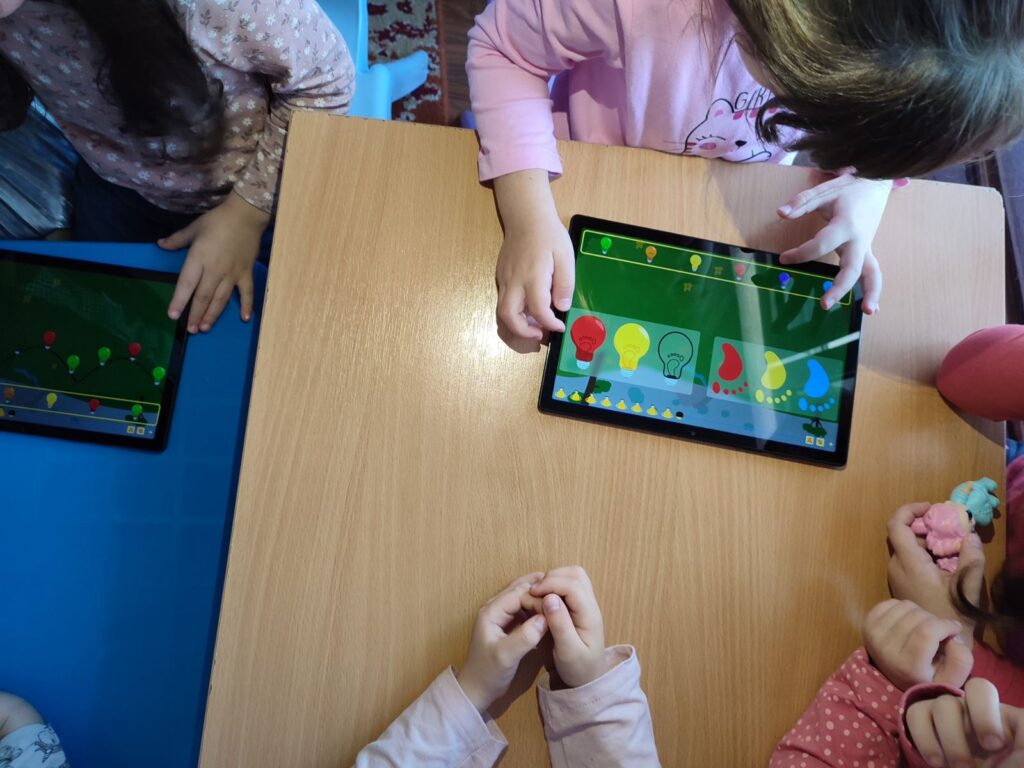
Local preschoolers try out the game for the first time
Towards the closing of the project phase, Edin and Bojana successfully completed the first beta test of their app with mathematical games and exercises for kids ages 3 to 5. The “FunMath4Start” app, Edin hopes, will be a useful tool for parents and educators to help teach early mathematical principles. Currently, they are looking to expand the functionality of the app to include games appropriate for 6 and 7-year-olds, as well as several new languages. Edin stresses that he wants to make sure the app is available to all free of charge, to best help the largest number of people possible.
Now that the pandemic has largely cooled off, Edin is happy that – in-between working on his project – he can spend some time going hiking and visiting historical cities with his family. Edin’s son still loves playing with his father’s app, and asks him almost every day: “Is it finished now?”
The post <strong>HLFF Spotlight – Alumni in Action</strong> originally appeared on the HLFF SciLogs blog.
